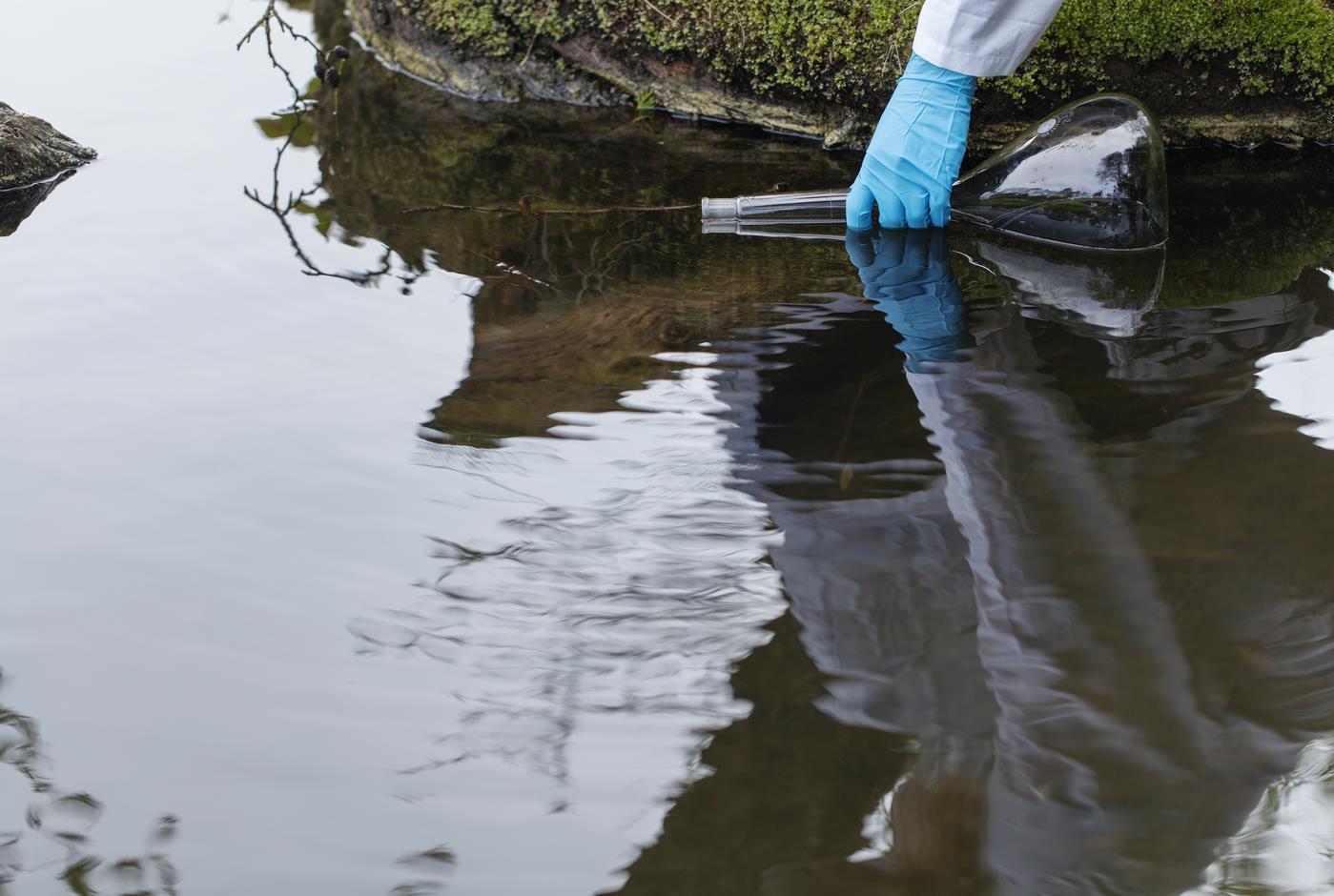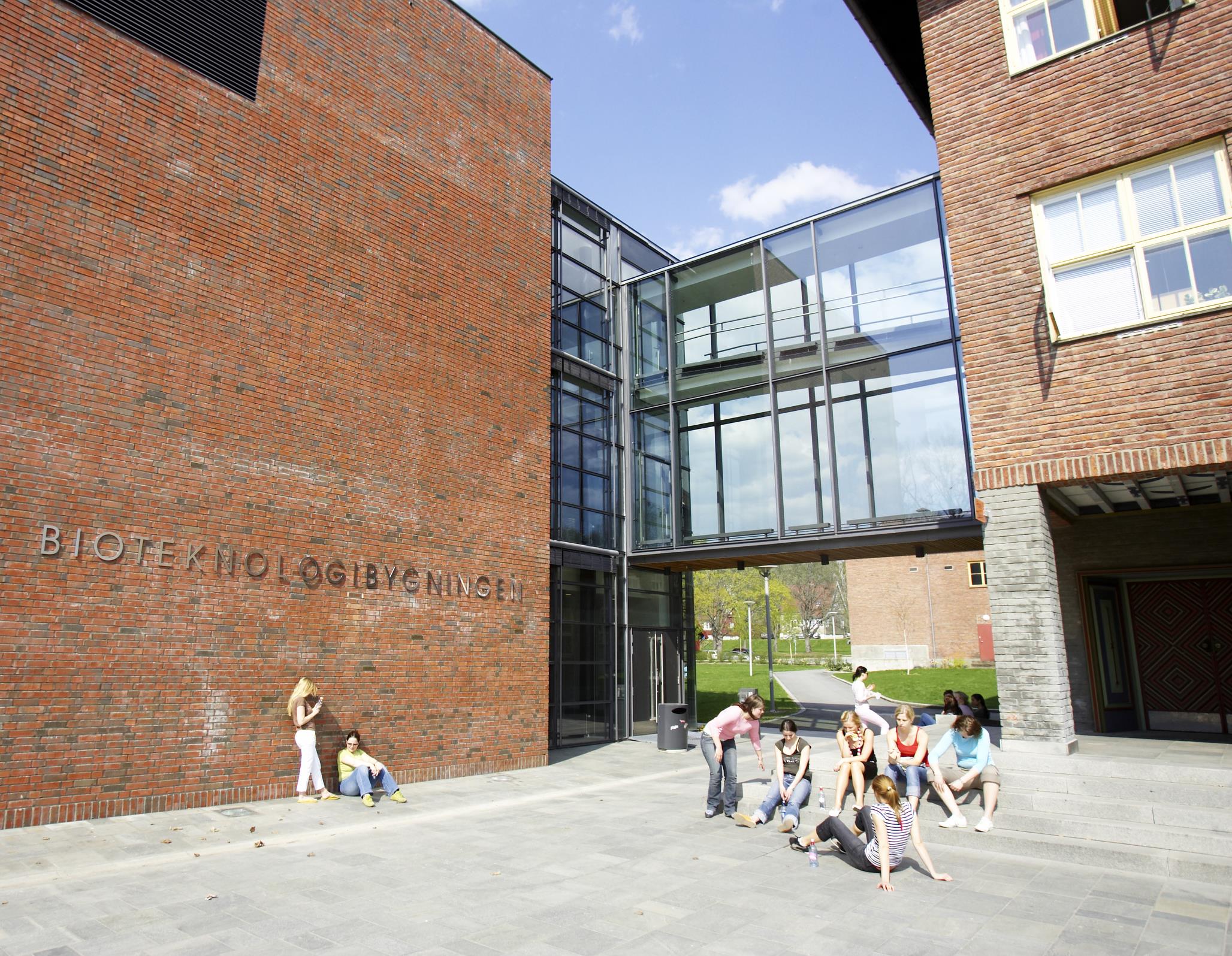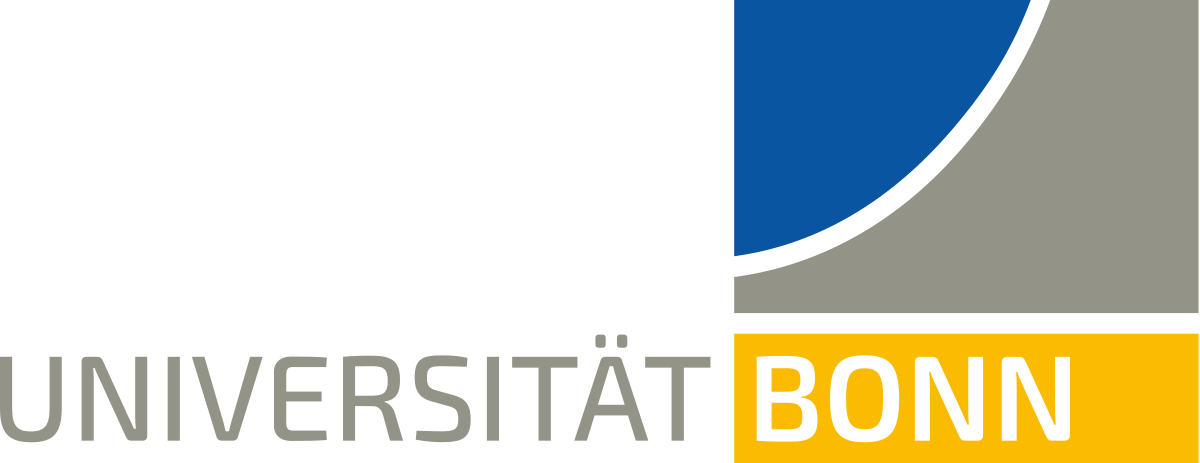Snabbfakta
-
- Ås
- Heltid
- Rekrytering
Kategorier:
- Analytisk kemi
- Kemi
Titlar:
- Doktorand
Ansök senast: 2025-01-13
PhD scholarship within Organic Analytical Chemistry
About the position
The Faculty of Chemistry, Biotechnology and Food sciences (KBM) at the Norwegian University of Life Sciences (NMBU) is advertising a 3 (three) year PhD fellowship with the option for extension to four years. The project is related to method development for the quantification of emerging organic pollutants in the Nordic aqueous environment.
The PhD position is jointly funded by three externally supported project. The successful candidate will contribute to the GREW project (pollutant in recycled grey water resources), FEARLESS (novel poly- and perfluoroalkyl substances (PFAS) in coastal environments as well as to the recently established EU partnership for the assessment of risks from chemicals (PARC).
The research project will focus on method development and scientific support of field experiments. All projects will require method development and validation including quality control procedures for trace level quantification of emerging organic chemicals of emerging concern (CECs) in marine water and biota)
The successful candidate will also be involved in the investigation of environmental consequences of such chemicals and assist in applying toxicological risk assessment methods. In addition to non-target analysis and target suspect screening, a major focus of the research will be laid upon method development for laboratory- and field experiments. The candidate will apply and operate highly advanced trace analytical technologies (LC-qToF, LC-QqQ, GCxGC-ToF, GC-qToF for quantification and identification).
The applicant should notice that a MSc in chemistry or equal qualification is required.
Main tasks
The successful candidate will
- develop and optimize multi-component organic-analytical methods for the quantitative determination of Chemicals of emerging concern (CECs) by actively using advanced high resolution chromatographic methods and mass selective detection.
- be instrumental in conducting field and laboratory experiments for fate and risk assessment.
- contribute to the already ongoing environmental studies and co-supervise ongoing Bachelor and Master level student projects. In Collaboration with associated research groups in the faculty of veterinary medicine at NMBU.
- apply modern method evaluation strategies in organic trace analysis and comprehensive statistical method for interpretation of complex chemical and exposure data.
We have compiled a deliberation for this position.
Join ArcSolution in Protecting the Arctic
The Arctic is undergoing rapid transformations due to climate change and pollution from both local and distant sources, significantly affecting human life, wildlife, and ecosystems. ArcSolution is committed to addressing these challenges through a holistic “One Health” approach, which integrates local and Indigenous knowledge with scientific research across four key Arctic locations: Northern Finland, Svalbard, Northern Norway, and Greenland. Learn more at www.arcsolution.eu.
Our focus is on key pollutants such as mercury, plastics, and pathogens, and their impacts on ecosystems and human health. Collaborating closely with local communities, the ArcSolution team is dedicated to developing sustainable solutions that incorporate circular economy principles, locally adapted technologies, and effective chemical management. Our findings will be disseminated to schools, policymakers, industry, and the scientific community to promote sustainable actions for a healthier Arctic.
As part of our priority research, ArcSolution is seeking a dedicated and highly motivated early-career scientist with expertise in analytical chemistry. The successful candidate will play a crucial role in evaluating and implementing locally anchored mitigation strategies to reduce or eliminate waterborne pollution in Arctic settlements and environments.
Join us in making a meaningful impact on the Arctic's future
NMBU
Competence
The applicant must have an academically relevant education corresponding to Master of Science (MSc) in chemistry, with a specialisation in organic analytical chemistry or similar. The applicant must have a documented strong academic background from previous studies and be able to document proficiency in both written and oral English. The applicant must document expertise and interest in the research subject.
Required Academic qualifications
- Experience in quantitative trace analysis of organic pollutants in environmental samples.
- Versed in the development and conduction of field-based exposure studies as well as laboratory experiments for environmental assessment and trace level determination of organic pollutants.
- Adequate knowledge/ expertise on quality control and validation criteria for modern multi-component trace analytical technologies such as high-resolution chromatography (GC & HPLC) in combination with mass selective detection.
The following experiences and skills will be emphasized:
- Knowledge on handling and interpretation of relevant software for qualitative and quantitative data handling
- Solid understanding in Chemometrics.
- Team-oriented working attitude and practical experience with GC/LC instrument maintenance and hardware adjustments.
- Experienced in experimental design for exposure and pollutant distribution assessments.
Remuneration and further information
The position is placed in government pay scale position code 1017 PhD. Fellow. PhD. Fellows are normally placed in pay grade 54 (NOK 532 200) on the Norwegian Government salary scale upon employment and follow ordinary meriting regulations.
Employment is conducted according to national guidelines for University and Technical College PhD scholars.
For further information, please contact Prof. Dr. Roland Kallenborn
E-mail: roland.kallenborn@nmbu.no; phone +47 67232497/ 90879988
Information for PhD applicants and general Information to applicants

Application
To apply online for this vacancy, please click on the 'Apply for this job' button above. This will route you to the University's Web Recruitment System, where you will need to register an account (if you have not already) and log in before completing the online application form.
Application deadline: 13.01.2025
Your CV must be entered in JobbNorge's CV form and not just included as an attachment. This is to be able to comply with the regulations of §15 of the Public Administration Act.
In the application, the candidate must confirm that information and documentation (in the form of attachments) submitted via the job application can also be used by NMBU in a possible admission process.
Applicants invited for an interview are expected to present original diplomas and certificates.
The following documents must be attached to the application:
- Motivation letter (maximum 1 page)
- Complete CV
- Certified copies of academic diplomas and certificates. (i.e. Diploma, transcript. Diploma supplement for both bachelor and master). Diplomas, transcripts and diploma supplements that are not in Norwegian or English must be uploaded in the original language. An English translation of these documents must also be attached.
- Applicants from universities outside Norway are kindly requested to send a diploma supplement, or a similar document, which describes in detail the study program and grading system.
- Documentation of proficiency in written and oral English in accordance with NMBU PhD regulation section 5-2 (3).
- Names and contact details for two references
- Additional relevant documentation of professional knowledge (for example, list of scientific works). If it is difficult to judge the applicant’s contribution for publications with multiple authors, a short description of the applicant’s contribution must be included.
About The Faculty of Chemistry, Biotechnology and Food Science
The Faculty of Chemistry, Biotechnology and Food Science (KBM) has about 180 employees, 80 PhD students and 500 BSc and MSc students. The faculty has 11 research groups within chemistry and biochemistry, microbiology and microbial gene technology, bioinformatics and data analysis, food science and nutrition. The Faculty has a state-of-the-art infrastructure for research and education: A biorefinery lab, proteomics platform, fermentation lab, a murine facility, platform for studies of microbial regulation of GHG release and a small-scale pilot plant for processing of food, incl. a microbrewery. Additionally, KBM has a strong competence in enzymology, fermentation and biorefining. KBM aims at a strong research position and collaborates in networks and research projects both nationally and internationally.
For further information please follow this link: https://www.nmbu.no/en/faculty/kbm

The Norwegian University of Life Sciences
NMBU will contribute to securing the future of life through outstanding research, education, communication and innovation. We have the country's most satisfied university students, who receive research-based education in a unique student environment. Our graduates gain a high level of competence in interdisciplinary collaboration and are popular in the labor market.
NMBU has internationally leading research environments in several subjects. Together with our partners in society and business, we contribute to solving some of the biggest societal challenges of our time. We focus on innovation, communication and entrepreneurship because we believe these challenges are best solved with joint efforts. We believe that a good working environment is characterized by diversity.If necessary, workplace adaptations will be made for persons with disabilities. More information about NMBU is available at www.nmbu.no/en
Questions about the position
Dr. Roland Kallenborn
Professor
+47 67232497
roland.kallenborn@nmbu.no



